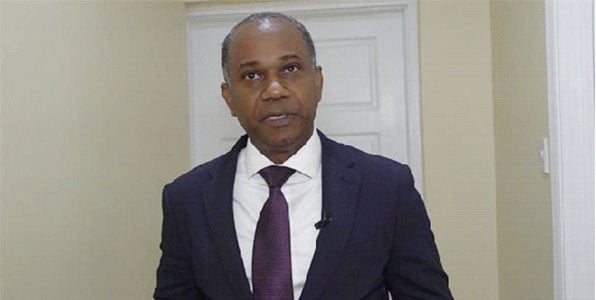MIAMI, Florida, CMC – St Lucia attorney general, Leslie Mondesir said ensuring a safe and secure space for the ICC Men’s Twenty20 World Cup is a priority for the Caricom security officials.
Mondesir is chairman of the 27th meeting of the Council for National Security and Law Enforcement (CONSLE), which started on Thursday in the United States.
Discussions at the meeting are expected to focus on security arrangements and preparations for the World Cup, including legislative and operational updates, advance passenger information (API) or passenger name record (PNR) legislation.
“As I speak of the tournament that is upon us, the iconic Men’s T20 World Cup Trophy is currently making its rounds through the six Caribbean host countries and is currently in Guyana,” Mondesir said.
“The security cluster continues to make preparations and work towards ensuring a safe and secure space during that period, I urge you to pay keen attention to the arrangements in place from both the legislative and operational perspectives.”
The World Cup will be co-hosted by the Caribbean and the United States from June 1 to 29, and security arrangements for the tournament will form a significant portion of the deliberations at the CONSLE meeting.
Mondesir said it was important to ensure a healthy, safe, and friendly environment for the participants and spectators at the World Cup.
“Specific sectoral updates will be provided by IMPACS, CARPHA and the chair of the health, safety and security committee,” he said.
Caricom ministers with responsibility for national security, representatives from the Caricom Implementation Agency for Crime and Security (IMPACS), Caribbean Public Health Agency (CARPHA), Regional Security System (RSS), and the Caricom Secretariat are attending the meeting.
On the API and PNR legislation that will also benefit attendees of the World Cup and enable them to travel to host territories in the Caribbean practically hassle-free, Mondersir said emphasis was placed on the importance of securing all points of entry within member states.
“Another important issue is the enactment of the API/PNR, which will, inter alia, not only enhance the ability of border security and law enforcement agencies to identify and mitigate potential threats, but it will also strengthen regional cooperation and coordination in addressing transnational security challenges,” he said.
“This augurs well as it will be a major link in further securing all points of entry in member states.”

